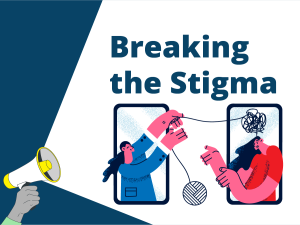Unlocking your child’s full potential starts with nurturing their emotional intelligence.
In the dynamic landscape of child development, parents play a pivotal role in shaping not just academic success but also long-term happiness and fulfillment. One often underestimated key to unlocking a child’s full potential is fostering their emotional intelligence.
The Crucial Role of Emotional Intelligence in Children’s Development and Future Success
Emotional intelligence is not just a buzzword; it’s a critical factor in a child’s holistic development. It encompasses self-awareness, self-regulation, empathy, and social skills. These components form the foundation for a child’s ability to navigate the complexities of relationships, academics, and mental well-being.
Understanding Emotional Intelligence and Its Impact
Emotional Intelligence:
Emotional intelligence involves recognizing, understanding, and managing one’s own emotions, as well as being attuned to others’ emotions. It is a skill set that goes beyond academic prowess, laying the groundwork for a resilient and socially adept individual.
Components of Emotional Intelligence:
- Self-Awareness: The ability to recognize and understand one’s own emotions.
- Self-Regulation: Effectively managing and controlling one’s emotional responses.
- Empathy: Understanding and sharing the feelings of others.
- Social Skills: Navigating social situations with finesse and building positive relationships.
Why Parents Should Foster Emotional Intelligence: The Crucial Role
Parents are the primary influencers in a child’s life, and fostering emotional intelligence is a gift that keeps on giving. Children with strong emotional intelligence are better equipped to handle the challenges of life, forming healthier relationships, excelling academically, and maintaining robust mental well-being.
Encouraging Emotional Expression: Creating a Safe Space
Significance of Expression:
Children need a safe and supportive environment to express their emotions freely. This not only aids in emotional development but also fosters trust and communication.
Strategies for Active Listening:
- Pay full attention: Show that their emotions matter by being fully present.
- Validate feelings: Acknowledge and validate their emotions without judgment.
Helping Identify Emotions:
Guide children in identifying and labeling their emotions accurately. This empowers them to understand and communicate their feelings effectively.
Teaching Emotional Regulation: Effectively Managing Emotions
Importance of Regulation:
Teaching children how to manage their emotions is a crucial life skill. It prevents impulsive reactions and lays the foundation for resilience.
Techniques for Self-Regulation:
- Deep Breathing Exercises: Teach simple breathing techniques to calm the mind.
- Mindfulness Activities: Introduce age-appropriate mindfulness practices.
Modeling Behavior:
Parents serve as role models for emotional regulation. Demonstrate healthy emotional responses to show children how to manage their own feelings.
Building Empathy Skills: Nurturing Compassion in Children
Benefits of Empathy:
Empathy is the cornerstone of positive relationships. It fosters understanding, kindness, and a sense of community.
Activities for Developing Empathy:
- Storytelling: Share stories that highlight different perspectives.
- Role-Playing: Engage in role-playing scenarios to promote perspective-taking.
Developing Social Skills: The Link Between EI and Positive Social Interactions
The Social-Emotional Connection:
A strong link exists between emotional intelligence and effective social skills. Children with high emotional intelligence are adept at communication, active listening, and conflict resolution.
Guidance for Social Skills:
- Effective Communication: Teach the importance of clear and respectful communication.
- Active Listening: Encourage attentive listening to understand others.
- Conflict Resolution: Provide strategies for resolving conflicts peacefully.
Conclusion: Prioritize Emotional Intelligence for Lifelong Success
In conclusion, nurturing your child’s emotional intelligence is an investment in their future success and happiness. As parents, your guidance in developing self-awareness, regulation, empathy, and social skills sets the stage for a well-rounded and resilient individual. Unlock your child’s full potential by prioritizing emotional intelligence today.
For more personalized guidance on fostering your child’s emotional intelligence, Call/WhatsApp +254745562108 or visit www.hisia.co.ke.









